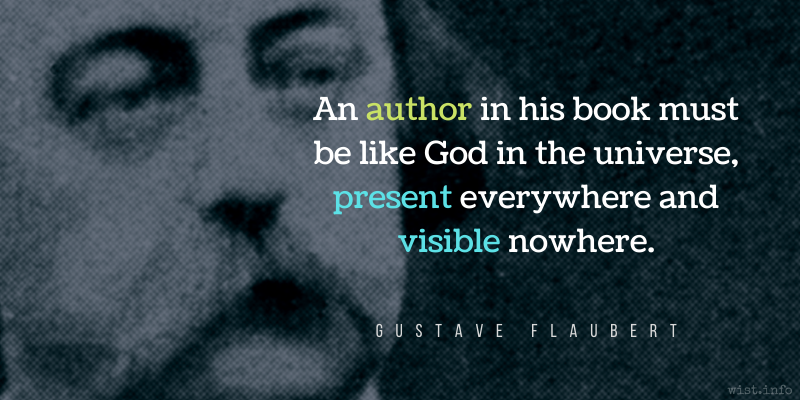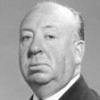KING RICHARD: For God’s sake, let us sit upon the ground
And tell sad stories of the death of kings —
How some have been deposed, some slain in war,
Some haunted by the ghosts they have deposed,
Some poisoned by their wives, some sleeping killed,
All murdered.William Shakespeare (1564-1616) English dramatist and poet
Richard II, Act 3, sc. 2, l. 160ff (3.2.160-165) (1595)
(Source)
Quotations about:
storytelling
Note not all quotations have been tagged, so Search may find additional quotes on this topic.
First, find out what your hero wants, then just follow him.
Ray Bradbury (1920-2012) American writer, futurist, fabulist
Lecture (1973-06-22), Santa Barbara Writers Conference, Cate School, Carpenteria, California
(Source)
Quoted in Barnaby Conrad, The Complete Guide to Writing Fiction, ch. 13 "Motivation" (1990). Conrad was one of the founders of the SBWC.
I believe that the truth about any subject only comes when all sides of the story are put together, and all their different meanings make one new one.
Alice Walker (b. 1944) American writer, activist
“Beyond the Peacock: The Reconstruction of Flannery O’Connor,” In Search of Our Mothers’ Gardens (1983)
(Source)
The fust intimashun i had that i waz gitting old waz, i found myself telling to mi friends the same storys over again.
[The first intimation I had that I was getting old was, I found myself telling to my friends the same stories over again.]
Josh Billings (1818-1885) American humorist, aphorist [pseud. of Henry Wheeler Shaw]
Everybody’s Friend, Or; Josh Billing’s Encyclopedia and Proverbial Philosophy of Wit and Humor, ch. 155 “Affurisms: Ink Lings” (1874)
(Source)
And now you’ll be telling stories
of my coming back
and they won’t be false, and they won’t be true,
but they’ll be real.Mary Oliver (1935-2019) American poet
“The First Time Percy Came Back,” A Thousand Mornings (2012)
(Source)
An attack upon our ability to tell stories is not just censorship — it is a crime against our nature as human beings.
Salman Rushdie (b. 1947) Indian novelist
“Public Event, Private Lives,” speech, University of Colorado, Boulder (2013-04-17)
(Source)
The suggestion that the world could be completely other than it is always annoys those who are content with the way things are. Stories of imagination tend to upset those without one. Rulers are suspicious of new worlds where their writ does not run. Jailers don’t like escapism.
Terry Pratchett (1948-2015) English author
Foreword to David Pringle, ed., The Ultimate Encyclopedia of Fantasy (1999)
(Source)
Often just given as "Stories of imagination tend to upset those without one."
“All stories are true,” Skarpi said. “But this one really happened, if that’s what you mean.” He took another slow drink, then smiled again, his bright eyes dancing. “More or less. You have to be a bit of a liar to tell a story the right way. Too much truth confuses the facts. Too much honesty makes you sound insincere.”
Patrick Rothfuss (b. 1973) American author
The Name of the Wind, ch. 26 “Lanre Turned” (2007)
(Source)
I was stunned to realize that it was possible to make up things that had never happened but which felt as if they’d happened. The church had tried to convince me that there was only truth and falsehood and nothing in between, but the nuns and priests were wrong; the story in front of me was false, but in the reading of it my heart accepted it as true. I turned over the book to reveal the writer’s name. I hadn’t previously paid much attention to the names on book covers, but by god somebody sat down and wrote that story. Wouldn’t it be amazing if I could do that? I thought. And with an electric thrill I felt a key turn deep inside me.
It’s simply not an adventure worth telling if there aren’t any dragons.
J.R.R. Tolkien (1892-1973) English writer, fabulist, philologist, academic [John Ronald Reuel Tolkien]
(Misattributed)
Variant: "It simply isn’t an adventure worth telling if there aren’t any dragons."
Actually found in Sara Ban Breathnach, Simple Abundance, "February 16: At the End of Our Exploring" (2005). Breathnach quotes an actual Tolkien warning about dragons earlier on the page, apparently leading people to misattribute this phrase of hers to Tolkien.
More discussion: Not a Tolkien quote: It simply isn't an adventure worth telling if there aren't any dragons - thetolkienist.com.
A person, an individual being, has a thousand ways of conveying his feelings and thoughts. He is riches without end, he is a world in which we can always discover something new. A crowd, on the other hand, reduces the individuality of the person; a man in a crowd limits himself to a few forms of elementary behavior. The forms through which a crowd can express its yearnings are extraordinarily meager and continually repeat themselves: the demonstration, the strike, the rally, the barricades. That is why you can write a novel about a man, but about a crowd — never.
Ryszard Kapuściński (1932-2007) Polish journalist, photographer, poet, author
Shah of Shahs, Part 3 “The Dead Flame” (1982)
(Source)
Each evening, from December to December,
Before you drift to sleep upon your cot,
Think back on all the tales that you remember
Of Camelot.
Ask ev’ry person if he’s heard the story,
And tell it strong and clear if he has not,
That once there was a fleeting wisp of glory
Called Camelot.Alan Jay Lerner (1918-1986) American dramatist, lyricist, composer
“Finale Ultimo (Camelot Reprise)” [Arthur], Camelot(1960; 1967)
(Source)
Based on T.H. White, The Once and Future King (1958).
An author in his book must be like God in the universe, present everywhere and visible nowhere.
Gustave Flaubert (1821-1880) French writer, novelist
Letter to Louise Colet (9 Dec 1852)
(Source)
In a later letter to Leoroyer de Chanepie (18 Mar 1857), he repeated the sentiment: "The artist must be in his work as God is in creation, invisible and all-powerful; one must sense him everywhere but never see him."
There is a fifth dimension beyond that which is known to man — a dimension as vast as space and as timeless as infinity. It is the middle ground between light and shadow, between science and superstition, and it lies between the pit of man’s fears and the summit of his knowledge. This is the dimension of imagination. It is an area which we call … the Twilight Zone.
Rod Serling (1924-1975) American screenwriter, playwright, television producer, narrator
Twilight Zone, Introduction (1959)
(Source)
It seems to me that life’s circumstances, being ephemeral, teach us less about durable truths than the fictions based on those truths; and that the best lessons of delicacy and self-respect are to be found in novels where the feelings are so naturally portrayed that you fancy you are witnessing real life as you read.
And yet there is a degree to which […] all literature, highbrow or low, from the Aeneid onward, is fan fiction. […] Through parody and pastiche, allusion and homage, retelling and reimagining the stories that were told before us and that we have come of age loving — amateurs — we proceed, seeking out the blank places in the map that our favorite writers, in their greatness and negligence, have left for us, hoping to pass on to our own readers — should we be lucky enough to find any — some of the pleasure that we ourselves have taken in the stuff we love: to get in the game. All novels are sequels; influence is bliss.
If we game players wanted to have an experience controlled by somebody else, we could rent a videotape. Gamewrights should try to empower us as players, not limit us unnecessarily. Someone at every game design company should have a fulltime job of saying, “Why aren’t we letting the player decide that?” […] When they let such unnecessary limitations creep into a game, gamewrights reveal that they don’t yet understand their own art. They’ve chosen to work with the most liberating of media — and yet they snatch back with their left hand the freedom they offered us with their right.
Remember, gamewrights, the power and beauty of the art of gamemaking is that you and the player collaborate to create the final story. Every freedom that you can give to the player is an artistic victory. And every needless boundary in your game should feel to you like failure.Orson Scott Card (b. 1951) American author
Essay (1991-03), “Games with No Limits,” Compute Magazine, No. 127
(Source)
Making a film means, first of all, to tell a story. That story can be an improbable one, but it should never be banal. It must be dramatic and human. What is drama, after all, but life with the dull bits cut out.
Alfred Hitchcock (1899-1980) English film director
In François Truffaut, Hitchcock: A Definitive Study [Le Cinéma Selon Hitchcock], ch. 4 (1966) [tr. Truffaut (1967)]
(Source)
Why he avoids making "slice of life" films. Interview of Hitchcock by Truffaut.
Sometimes paraphrased as "Drama is life with the dull bits cut out."
Oft before Agamemnon brave men warred;
But all unwept they lie in endless night,
Lacking, to deck their deeds with light,
Song of a heaven-taught bard.[Vixere fortes ante Agamemnona
multi; sed omnes illacrimabiles
urgentur ignotique longa
nocte, carent quia vate sacro.]Horace (65-8 BC) Roman poet, satirist, soldier, politician [Quintus Horatius Flaccus]
Odes [Carmina], Book 4, # 9, l. 25ff (4.9.25-28) (23 BC) [tr. Marshall (1908)]
(Source)
"To Lollius." See also Gray.
(Source (Latin)). Alternate translations:Men slasht ere Diomed was made:
But all are in oblivion drown'd,
And put unmourn'd into the ground,
For lack of Sacred Poets aid.
[tr. Fanshawe; ed. Brome (1666)]Before that Age a thousand liv'd,
And sent surprising Glories forth,
But none the silent Grave surviv'd;
In Night their Splendor's gone,
They fell, unmourn'd, unknown;
Because no Verse embalms their Worth.
[tr. Creech (1684)]Before Atrides men were brave:
But ah! oblivion, dark and long,
Has lock'd them in a tearless grave,
For lack of consecrating song.
[tr. Conington (1872)]Many brave men lived before Agamemnon: but all of them, unlamented and unknown, are overwhelmed with endless obscurity, because they were destitute of a sacred bard.
[tr. Smart/Buckley (1853)]Many, many have lived, who were valiant in fight,
Before Agamemnon; but all have gone down,
Unwept and unknown, in the darkness of night,
For lack of a poet to hymn their renown.
[tr. Martin (1864)]Many brave men have lived long before Agamemnon,
But o’er them darkly presses the slumber eternal;
All unwept and unknown, wanting Him --
Everlastingly sacred -- the Bard!
[tr. Bulwer-Lytton (1870)]Many brave men lived before Agamemnon, but all like crushed under eternal obvlivion, unknown to us and unwept by us, because no bard hath immortalized them.
[tr. Elgood (1893)]Ere Agamemnon saw the light
There lived brave men: but tearless all,
Enfolded in eternal night,
For lack of sacred minstrels, fall.
[tr. Gladstone (1894)]Brave men before the great Agamemnon's time
Liv'd many, but in tearless oblivion
And night, unknown and unlamented
Lie they, for want of a sacred poet
[tr. Phelps (1897)]Prior to Agamemnon lived many who were brave,
But all unwept, unknown.
In endless night are plunged because
They lack a bard divine.v [tr. Garnsey (1907)]Many heroes lived before Agamemnon ; but all are overwhelmed in unending night, unwept, unknown, because they lack a sacred bard.
[tr. Bennett (Loeb) (1912)]Before the age of Agamemnon wight
Lived many a hero, but unwept, unknown,
Because no sacred bard hymned their renown,
They, one and all, lie whelmed in endless night.
[tr. Mills (1924)]Many brave men lived before Agamemnon,
But all went down unmourned, unhouured, into the smothering darkness
For lack of a minstrel to be their glory-giver.
[tr. Michie (1963)]There were heroes before Agamemnon
Was born -- but who knows them? Unmourned,
They lie buried in eternal darkness,
Sung by no sacred song.
[tr. Raffel (1983)]Heroes have lived before Agamemnon lived,
But all of them are lost somewhere in the night,
Unwept, unkonwn, unless they had a poet
To tell what was their story.
[tr. Ferry (1997)]Many brave men
Llived before Agamemnon.
But all of them, unwept and unknown,
are shrouded in eternal night
for lack of a sacred bard.
[tr. Alexander (1999)]Many brave men lived before Agamemnon:
but all are imprisoned in unending night,
all of them are unwept and unknown,
because of the lack of a sacred bard.
[tr. Kline (2015)]





















